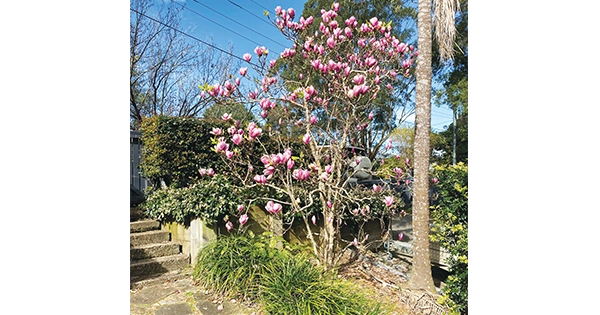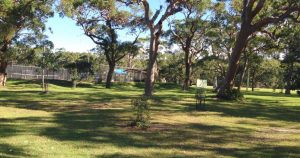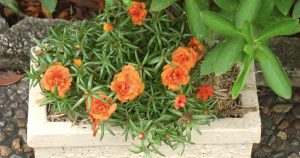The Galston District Garden Club met last month on the 2nd Wednesday of the month, at 7.30, (Galston Community Hall, 37 Arcadia Rd, Galston) and welcomed two visitors and Mark Engel from Engel’s Nursery who was our guest speaker for the night.
Apart from a very interesting talk, the club has a Trading Table where members can purchase a variety of plants at very reasonable prices, and sometimes there are jams, fruit and magazines.
You can also try your luck to win a potted plant in the raffle held at the end of the night before we enjoy a cuppa and conversation among the members. The guest speaker at the next meeting on the 14th September will be Norm Webb “The Honey Man” who will speak on Bees and Pollination.
Planning has begun for the Galson Open Garden Weekend 14/15/16th October 2022.
MAGNOLIAS: I have been away enjoying the sunshine in WA and came home to the beautiful sight of Magnolias flowering in and around Hornsby and Galston. There can be no better sight than the delicious petals of Magnolias from late winter to spring, when they’re in full bloom.
Magnolias originate from Asia, Western China and from the United States of America. Magnolias range in habit from small shrubs to large trees. Most are deciduous, although there are some evergreen varieties.
A Magnolia called “Caerhays Belle” has a very narrow, fastigiate shape and it’s excellent for a small garden because it needs almost no pruning and has a beautiful fragrance.
Another variety is a vivid purple Magnolia called “Phillip Tregunna”. The first-year flowers on some of the hybrids are never true to size and colour, but the following year they improve and have a beautiful fragrance.
Magnolia “Ruby” is a beauty because of the beautiful, exquisite shape of the bud and also a white edge around each of the petals. It blossoms out into sheer magnificence and if you’ve got a small garden, “Ruby” certainly fits into a small size and you can prune it to shape.
One of the best things about growing magnolias, and one of the reasons you will find them in urban gardens, is their shallow root system, so unlike many trees their size, they won’t disturb underground pipes, footings, foundations or pathways.
A Magnolia stores all its energy from the season before, so that instead of the new roots coming out with new growth, the new growth comes out first and followed by the roots. So, once it’s planted in the garden, the new growth is out and often collapses on extremely hot days.
A tip for planting Magnolias include adding at least 2 litres of chicken manure pellets and at least 2 litres of dolomite limestone. You can never give them too much. A full sun position is preferred because you have more flowers and if you’ve got clay soils and they’re very tight and badly-drained, you mound up high. In spring the snails and slugs love them. But apart from slugs and snails, nothing gets to them and they look after themselves.
When you have gone through a dull winter where there is nothing flowering and it is all looking pretty ordinary the Magnolias come out and bring joy and life to spring.
When you see all the different colours, you know spring is in the air. It is a kind of joy.
For more information regarding the Galston Garden Club please email: [email protected] or visit our web page, www.galstongardenclub.com.au









